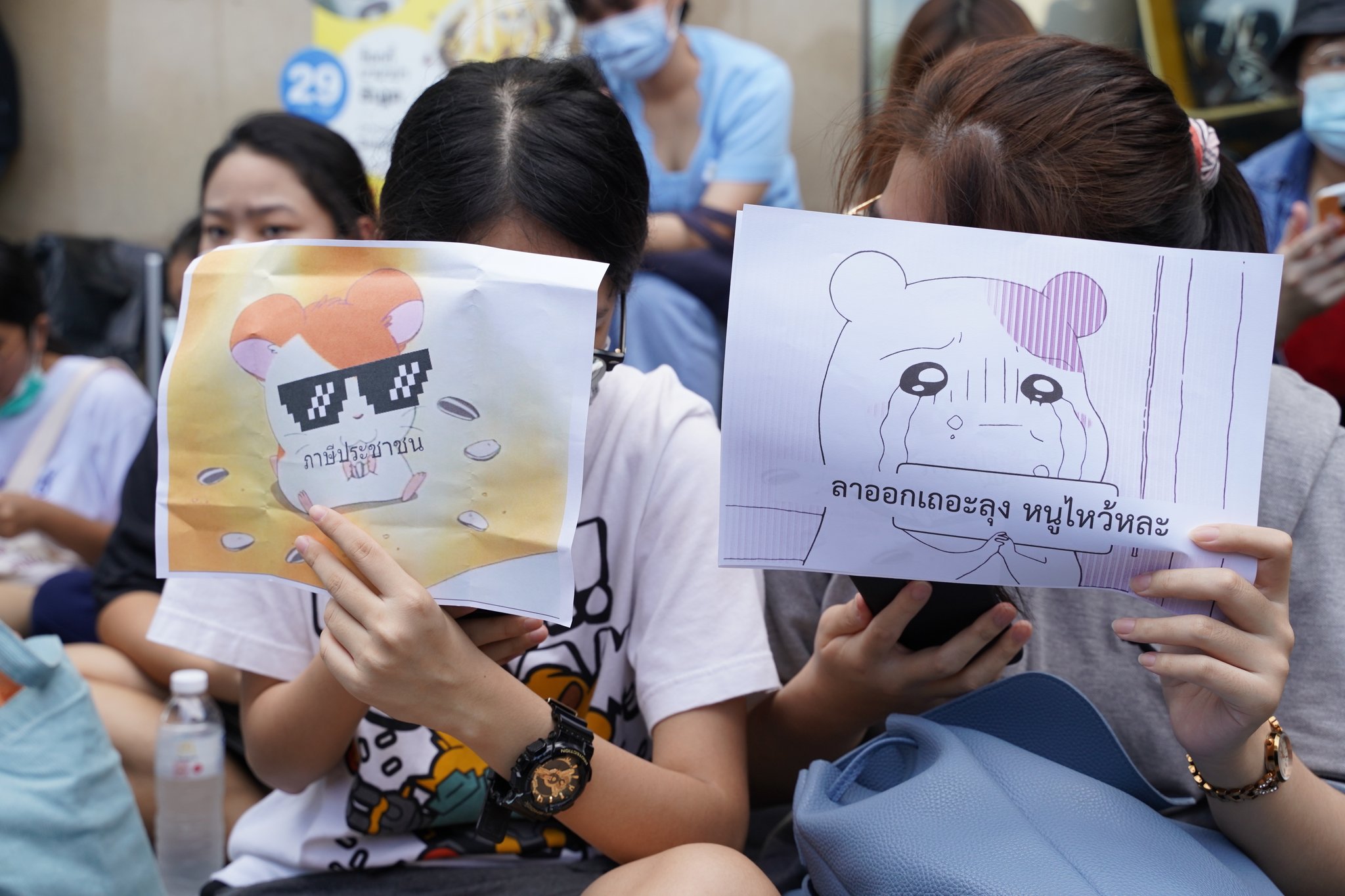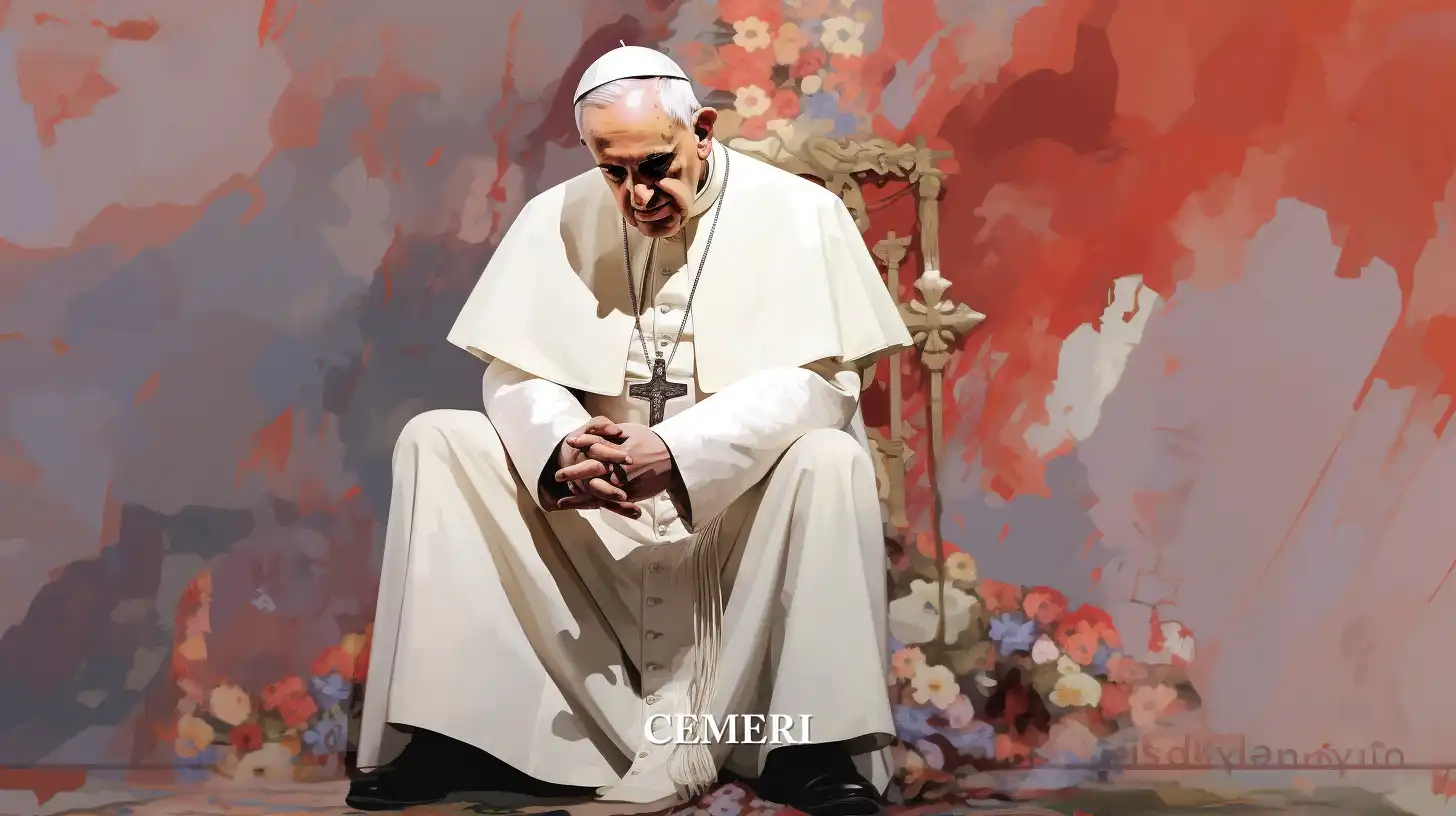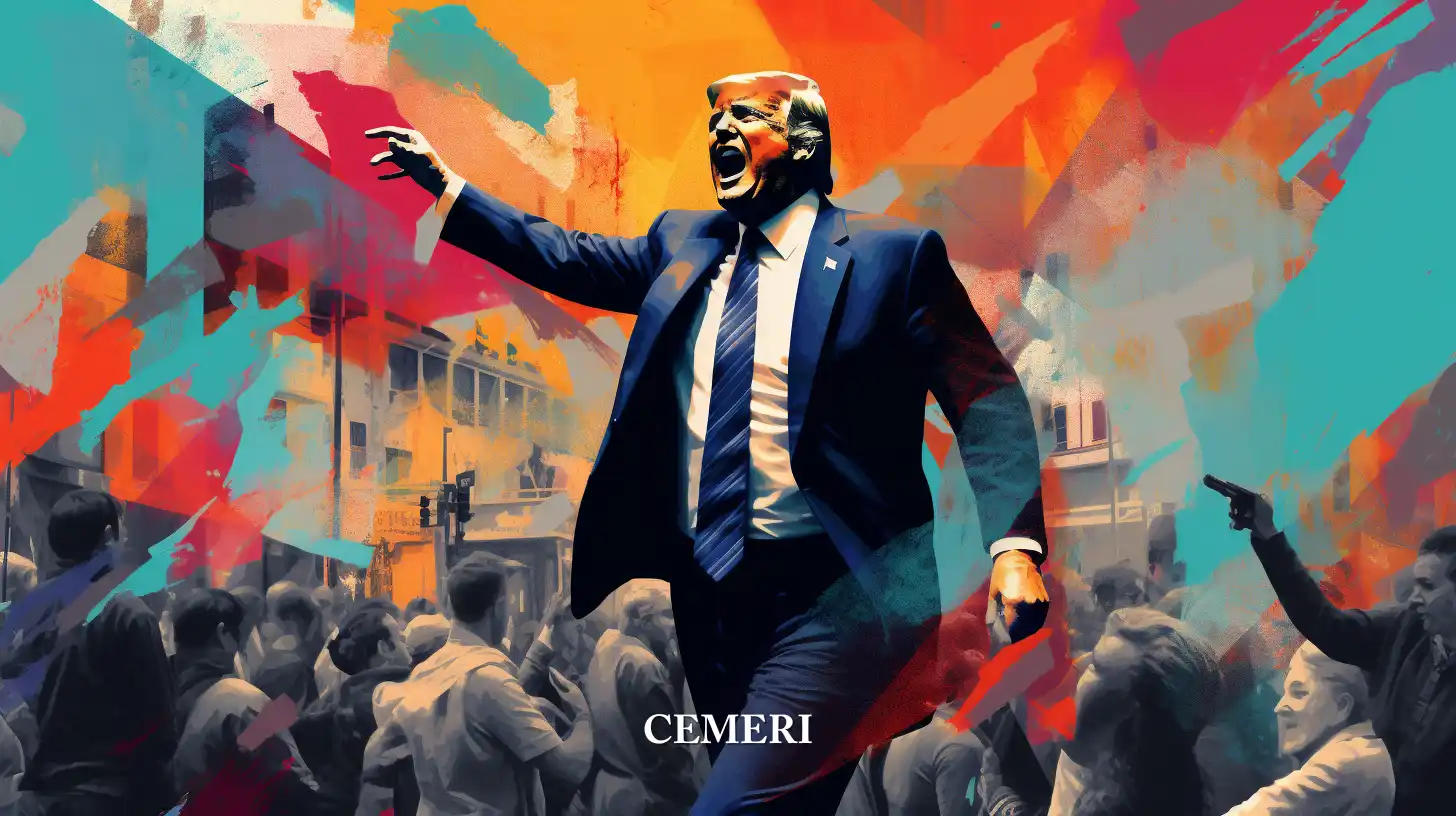Opinion
CEMERI
Why does Thailand want to overthrow he who must not be named?
- Thailand is known as ''the land of coups'', as it is in the Southeast Asian country where most have occurred in modern history.

Thailand is known as "the land of coups d'état", since it is in the Southeast Asian country where the most have occurred in modern history: twelve successful coups and nine failed ones1 since the first one took place in 1932 when the military they ended centuries of an absolute monarchy.
Since that year, it was written in the constitution that a king would lead a civil government, but the military loyal to the monarch refuse to abandon politics. They have orchestrated coups to end civilian governments - the country has had twenty-nine prime ministers - and have even overthrown their own generals when they have governed. The constitution has been amended countless times by the military juntas that have remained in charge of the government after the coups.
It is precisely the latter who have defended and allowed their system of government to endure, since they are part of an institution that, in the absence of external threats that could endanger the integrity of the State, was created to safeguard the monarchy; likewise, they guard and promote the culture of tradition and custom.
In February 2020, in yet another example of abuse of authority and censorship, the Supreme Court issued an injunction to dissolve a pro-democratic party popular with Thai youth, the Future Forward Party. Thai youth denounced the government's attempts to silence the opposition and took to the streets to protest, but the COVID-19 pandemic managed to slow down the movement as a nationwide lockdown was implemented to prevent the virus spread.
The world is surprised by the effectiveness of the sanitary measures implemented in Thailand. The country registers a very low number of infections and deaths, however, the government extended the application of the state of emergency, adding another factor of discontent in the population. Additionally, ** the pandemic has considerably reduced its already weakened economy **. This series of factors have managed to create the perfect breeding ground so that, since July 18, the protests broke out again in at least six provinces and in the capital.
Youth marches are organized through Facebook and via Zoom meetings, indicative of an articulated and organized movement. They make memes and trend Thai hashtags on Twitter like #RemoveTheYoke and #ThisMustEndInOurGeneration.2 They have also adopted the three-fingered Hunger Games salute to reflect their three core demands:
1. The resignation of the prime minister -Prayuth Chan-o-cha, a former general who carried out the last coup in 2014- and his cabinet, along with the dissolution of the National Assembly.
2. Scrapping the current constitution, which allowed Prayuth to win an election last year, and writing a new one;
3. end the harassment of activists or dissidents.
Although until now the marches and slogans have taken place within a peaceful framework, there have been pro-democratic movements before that have ended in bloody repressions by the army. Many protesters in this ongoing movement were only able to cast their votes in 2019 and have not experienced the violence of the past, but have experienced government excesses and an economic crisis.
A fragmented society
The political instability in Thailand is clear and, in addition, it is a fragmented society. The polarization can be traced back to 2001 when the foundations under which the country's political elite rested were upended by the rise to the Thai government of billionaire telecommunications businessman Thaksin Shinawatra, elected prime minister. Shinawatra enjoyed great popularity in Thailand for pursuing a pro-poor political agenda, and he was re-elected in 2005.
The following year, the army orchestrated a coup while he was in New York to attend the United Nations General Assembly. Thaksin Shinawatra has lived in exile ever since.
From that moment on, two clearly differentiated factions arose: the "red shirts" and the "yellow shirts". The red shirts are those people identified as supporters of Thaksin Shinawatra, while the yellow shirts are people loyal to the king and the military - they adopted the color yellow, the color of the king. Both sides have led massive protests and have clashed ever since.
Thaksin Shinawatra, former Thai Prime Minister. Photo: china.org
The last coup, in 2014, was led by the current prime minister, who ousted the prime minister, Yingluck Shinawatra, Thaksin's sister. In 2019, Prayuth went from being a coup leader to an “elected” ruler after organized elections in the National Assembly under a new constitution written in 2017 by the military junta that he himself headed. Prayuth himself believes that he brought political stability after years of violence.

Yingluck Shinawatra, former Thai Prime Minister. Photo: Reuters
Operating in the shadows
Even though the current protests in Thailand do not have a clear leader, it is believed that there are two people acting in the shadows organizing them:
1. Thaksin Shinawatra:
Despite his exile, he is believed to still influence Thai politics, as Pheu Thai, a party formed after the dissolution of his Thai Rak Thai party, won the most seats in the 2019 election - Thai Rak Thai could After a new prime minister emerged, but failing to obtain the required majority to govern and after failing to form a coalition government, the House of Representatives chose General Prayuth Chan-o-cha as prime minister, allowing him to repeat in the post.
2. Thanathorn Juangroongruangkit: Another Thai billionaire and founder of the Future Forward party. He promotes a reformist agenda in the economy, in politics and in the social sphere; Also, he is a strong critic of the intervention of the army in politics. This has caused his party to be the target of judicial attacks since its founding - they have been charged with sedition, computer crimes, among others.
![Thanathorn Juangroongruangkit, leader of Future Forward Party, smiles wearing a white shirt at a polling station.]
Thanathorn Juangroongruangkit Photo: Reuters
In 2019, he ran against Prayuth to lead the new government. That same year, his party managed to obtain six million votes in the general elections, winning 81 of 500 seats in the representative chamber - the lower house of the National Assembly -, becoming the third largest political force in the country.
Shortly thereafter, Thanathorn was barred from becoming a lawmaker after being accused of illegally owning shares in a media company when he was campaigning for the lower house.
His party, ** Futuro Hacia Adelante **, was dissolved in February 2020 -as already mentioned at the beginning of this text-, by the Constitutional Court for an illegal loan of six million dollars from Thanathorn to the party of he. He and other members of Future Forward were banned from Thai politics for 10 years. Critics of the government, mostly young students, consider these maneuvers as mere political persecutions after opponents and dissidents.
Prayuth Chan-o-cha, the Thai Prime Minister. Photo: EPA
Against He Who Must Not Be Named
In addition to the three demands already mentioned, Thai youth have also demanded changes in the monarchy, they have called for its powers to be limited, and they have demanded the reform of the lèse majesté law that prohibits criticism of it.
King Vajiralongkorn was newly crowned in 2019. He ascended to the throne after the death of his father, King Bhumibol Adulyadej, in October 2016. Following his coronation, Vajiralongkorn called for revisions to a new constitution that gave him powers emergency and, therefore, he assumed personal control of some units of the army3 and of the Office of Royal Properties - the body that manages the multimillion-dollar possessions of the monarchy and once managed independently.4
He is the same king who isolated himself from COVID-19 for a few weeks in a luxury hotel with twenty concubines. This event caused outrage in Thailand and the hashtag #WhyWeNeedAKing became a trend on Twitter.5 The Thai monarchy is known for its eccentricities and luxuries.
![The King of Thailand Maha Vajiralongkorn.]
King Maha Vajiralongkorn. Photo: EFE
Returning to the point of the lèse majesté law, article 112 of the Thai penal code refers to this law whose content indicates the penalty of up to 15 years in prison for anyone who dares to defame, insult or threaten the king, queen , the heir or the regent.6
However, in the protests they have dared to direct their slogans against the king in a very ingenious way. On August 3, young people took to the streets dressed as Harry Potter and other characters from the wizarding world. They carried their replica magic wands, carrying images of Lord Voldemort - a clear analogy of fighting against the king or against ''who must not be named'' - and participants were invited to cast the Patronus spell as a symbolic gesture of protection of democracy.
Thai youths dressed as wizards and witches from the magical world of Harry Potter during the demonstration. Photo: Reuters/Athit Perawongmetha
One of the organizers of this protest recalled an activist in exile:
‘‘I want everyone to think about the smile of Wanchalearm [Wanchalearm Satsaksit, human rights defender and exile in Cambodia since 2014]. Think of the smiles on our friends who have been forced into exile abroad. Think of the smiles on our friends who think differently and are forced to become people in order to overthrow Lord Voldemort. Think of the different ideas of our friends, the smiles of our friends who were kidnapped and disappeared because they think differently, and point your wand up to the sky.’’7
To the protests with reference to pop culture such as the three-finger salute from The Hunger Games and the Harry Potter-themed protest, there is also the protest held on July 26 where more than 1000 young people participated in the protest "Let's Run, Hamtaro" , during which they marched around the Democracy Monument in Bangkok, adapted the lyrics and sang the song from Hamtaro - the famous Japanese animated cartoon about a group of hamsters - in which they denounced oppression and government corruption, and showed their opposition to military coups.8
Thai youth showing images of Hamtaro. Photo: Prachatai
Although the threat of a coup d'état is always latent, since they are so normalized, so far there are no clear indications that this will happen immediately, since a large part of the population has limited themselves to observing and stay tuned for what may happen in the coming weeks.
However, it should be noted that the pandemic and its economic effects have impacted Thailand and could encourage its population to join the protests. Thousands of Thais have lost their jobs and their tourism industry has also been hit. If the pandemic continues, the effects could be devastating.
As already said, the only way protests can achieve results is if the movement has significant popular support, if this is not the case, the protests will die down like others carried out in previous years.
Although Thailand's lower house has already rejected a motion to ask Prayuth to start negotiations with the students, the prime minister assured, on August 4, his willingness to enter into a dialogue with them in a public forum that is expected to take place. out in this month.9
We must remain attentive to what may happen in the future.


